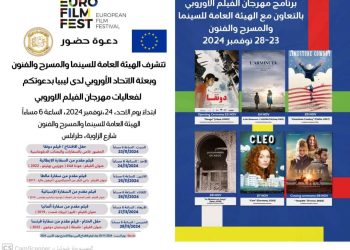By Ahmed Ruhayem
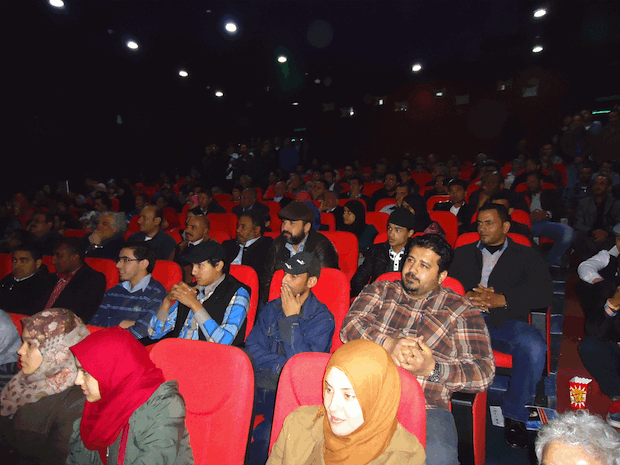
Benghazi, 24 February 2013:
A very different Benghazi to all the international media reports about insecurity in the city has . . .[restrict]just been on show. The 3rd Arab Screen Independent Film Festival (ASIFF), which ended yesterday, Saturday, has, in the view of everyone who was involved in it or who attended, been a remarkable success. Every day throughout the festival, there was a massive turnout with both local and international participation well exceeding expectations. Approximately 60 films were screened. Those attending told the Libya Herald that it was a fantastic environment to network and learn.
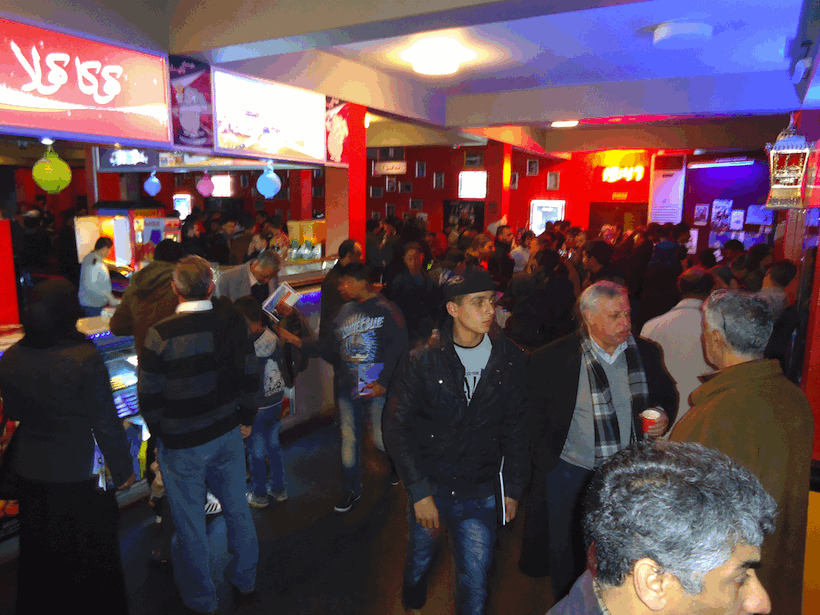
“An excellent achievement that coincided with our revolutionary celebrations,” was the response of Benghazi Local Council representative Osama Sherif. “The local council is planning on supporting next year’s event with a much bigger budget.”
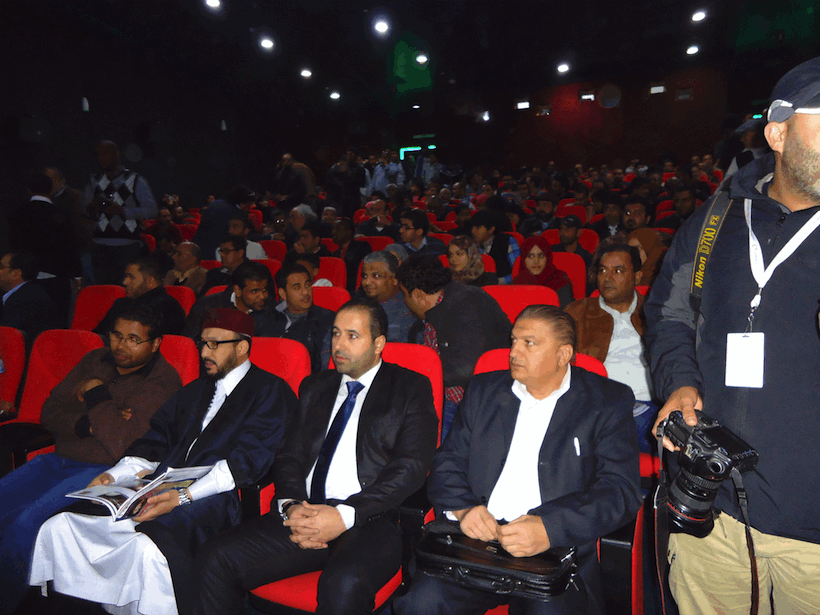
Naiem el-Bouri, board member of the Libyan Business Union (LBU) told the Libya Herald “the LBU is thankful for this opportunity to contribute and support young Libyan talent. These events are what Benghazi needs, a place for families and their children to enjoy and be inspired as well as learn about other cultures. The LBU looks forward to other opportunities such as this to support our young and gifted future community leaders.”
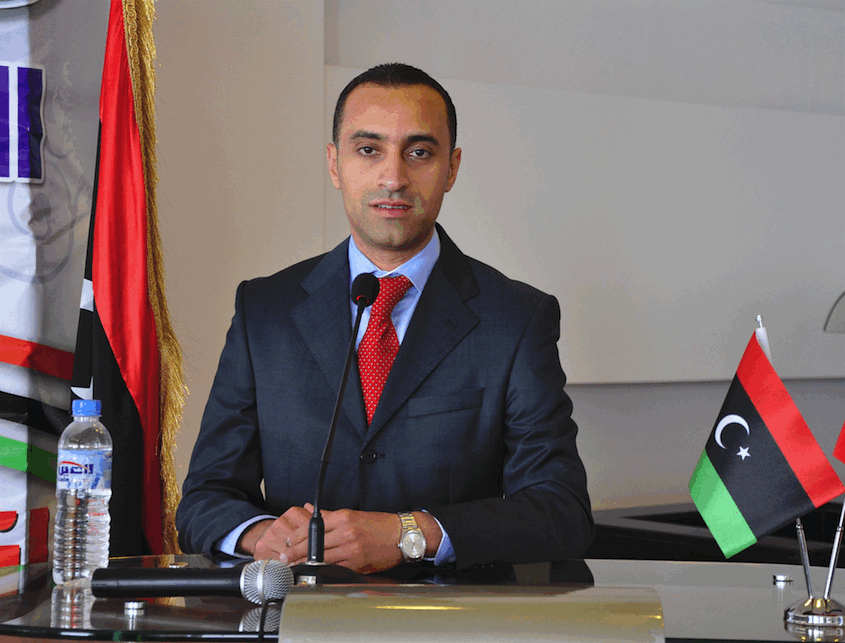
Salah Sherif president of the Libyan American Friendship Association said: “This is the Benghazi that came out during the revolution. It a city of people who love life and entertainment. The films were great. The short film Eagles of the Sky made me cry!”
The Iraq-British director, Koutaiba al-Janabi, participated with his feature film Departure from Bagdad and led workshops on still photography, lighting as well as film and TV camera work. Speaking to the Libya Herald about his amazing experience at the Benghazi festival, Koutaiba commented: “I expected a few students to show up for the workshops but was surprised when I saw 60 participants, each with their own cameras and all their eyes had questions for me.
“It’s been two years since the revolution, but watching all the footage made me experience what it is was really like in those days.”
Koutaiba also expressed his appreciation to all those who gave him research material, documents and photographs of his late father, who was living in Libya in the early 1950s, training young Libyan army officers. He hopes that it may lead to a film about that period of his own family’s life.
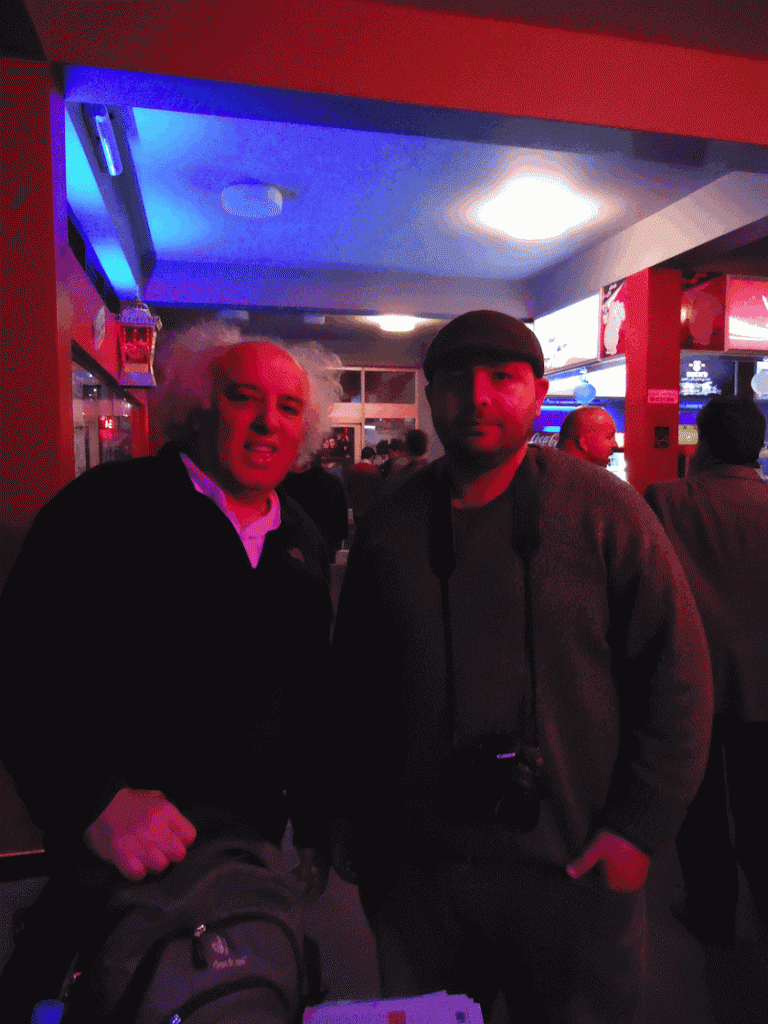
Saturday, the final night of the festival included the presentation of awards which took place in front of a packed film theatre. The main prize winners for ASIFF festival were;
Best Documentary (2 co-winners)
- The Thousand Mile Road (Murad Gargoum, Libya) and
- Me and the Agenda (Neveen Shalaby, Egypt)
Best Short Fiction
- January Cold (Egypt)
Jury’s Special Prize
- The Long Way Down (Yasser Howaidy, Egypt)
Martyr Mohamed Nabbous Prize Best Libyan Film
- Road to Bab el Azizia (Faraj al-Firjani & Ali Delax, Libya)
Martyr Mahdi Ziu Prize (3 co-winners)
- Symphony Benghazi (Abdul-Rahman al-Honi, Libya)
- Return of a Flag (Mohamed al-Theeb, Libya)
- A Woman from Benghazi (Tariq Mahyous, Libya)
A common theme for all the Libyan prize winners was that this was their first professional short film production. Each of these participants had a story to tell.
The Thousand Mile Road, directed by Murad Gargoum, a co-winner for the Best Documentary film, was developed out of the need to tell the world what was going on during the early days of the revolution in Benghazi. He filmed and edited the entire film on 19 February 2011, before the fall of Qaddafi’s Katiba barracks and then made 20 copies, shipping them with an Egyptian shuttle bus driver, to be distributed in Egypt. It did not take long before Human Rights Watch contacted Murad for permission to use his footage.
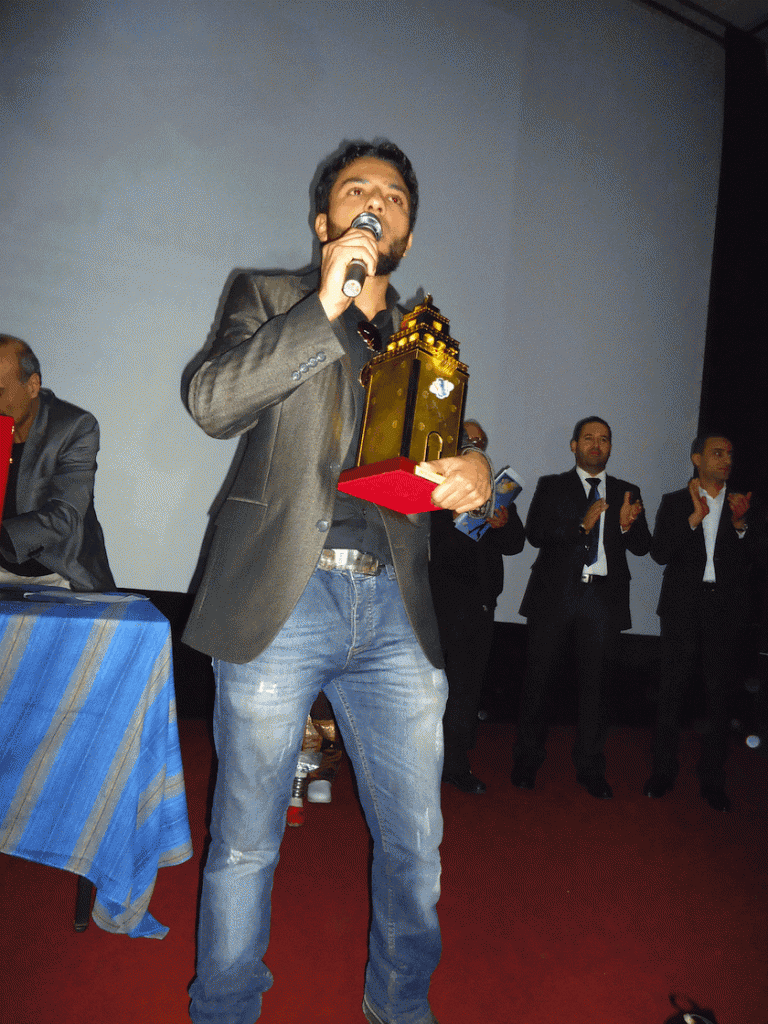
The idea for Road to Bab Al Azizia was a conversation between Faraj al-Firjani, a Libyan accountant turned director, and an American journalist questioning why Libyans did not try to get rid of Qaddafi earlier. Faraj together with his friend and co-director Ali Delax, set out to tell the world that Libyans had in fact been trying unsuccessful for many years to get rid of the dictator.
Speaking to the Libya Herald before the awards ceremony, Faraj explained: “The film is about the failed attempts to overthrow the Qaddafi regime in the early 1980s. It took us more than 18 months to complete this project with a lot of travel, conducting interviews and filming across Libya.” When asked about their chances at the awards, Ali Delax confidently stated: “The audience’s applause was the best reward for our work.” Their film won the Martyr Mohammed Nabbous Prize for Best Libyan film.
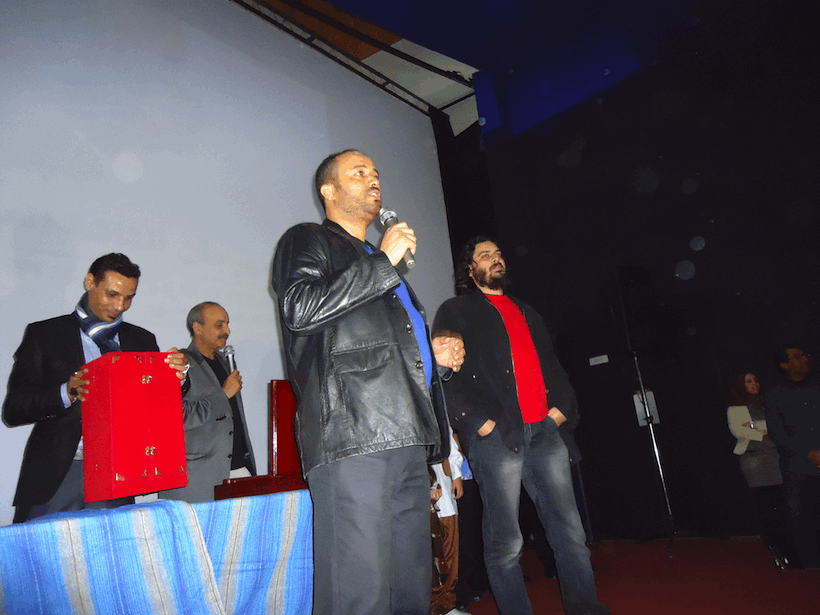
The Mahdi Ziu prize was shared by three Libyan films. One of the co-winners, Symphony Benghazi, was written and directed by Abdul-Rahman al-Honi, who has already achieved some commercial success with a 12-episode TV series, Tfaúl Khier (Be Optimistic), broadcasted on both Alhurra and Almontada satellite TV.
“The motivation for the short film was to let the world know that although life in Benghazi may be difficult and complicated, it is still a life worth living, where everyone living in the city feels completely part of its symphony,” Al-Honi told the Libya Herald.
The Return of a Flag directed by Mohamed al-Theeb is also a Mahdi Ziu prize co-winner. Al-Theeb, an enthusiastic viewer of Al–Jazeera Documentary Channel, explained that “many people asked about the sudden and immediate appearance of the tricolored revolutionary flag. Our short film answers this question from a historical angle as well as the story of first flag mounted on top of the court building which was sewed by Haj Samira Ben Saud on 19 February 2011.”
Theeb’s film will participate in the Al-Jazeera Documentary competition in April.
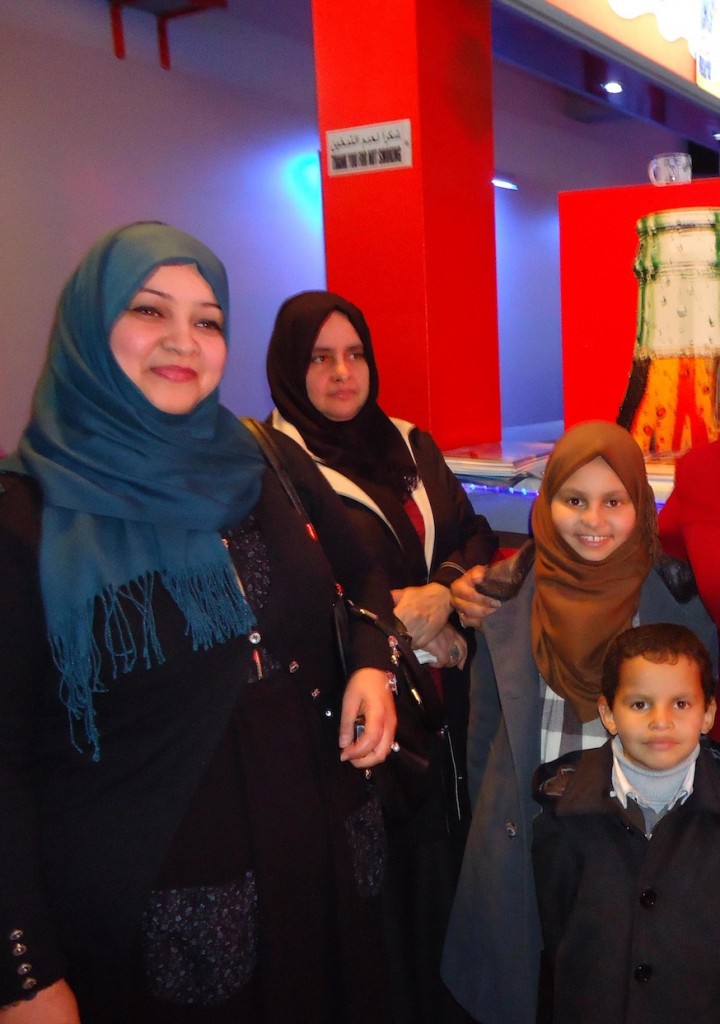
A Woman from Benghazi, directed by Tariq Mahyous, is also a co-winner of the Mahdi Ziu prize.
“The film tells the story of a woman who took it upon herself to clean the streets around Freedom Square”, Tariq said. “The film covers the personal complicated human life of a woman in desperate need of support. In post-revolutionary Libya, we are able to show these human stories that make our community more aware of its surroundings. We need to contribute financial and emotional to our community members in need.”
Mahyous started working as a news editor for a couple post-revolutionary newspapers in 2011 and then produced three revolutionary songs in 2012, before making a small documentary about the start of Sanabel Radio for Children.
Tarek al-Shieky, one of Libya’s popular theatrical stars, followed most of the Libyan participating films, observing “after the Arab spring there are no limits to film ideas and subjects. With today’s available technology, there is a lot of opportunity for young film makers to practice their abilities. What is lacking is expertise. That will eventually come with experience. In the coming years, events such as ASIFF will reward the best.”
Esam Tarakhan head of the ASIFF Jury committee, explained the selection process to the Libya Herald: “Only 11 movies out the 60 participating films have been shortlisted for the major ASIFF prizes. The selection of the shortlisted focused on both technical standards and cultural considerations. The film ideas and artistic execution made up the criteria for the final prize winners.”
Tarakhan has over 20 years of professional experience within the media industry. Originally a graduate of Architecture and Fine Arts from Florence University in Italy in 1974, he shifted his attention to cinema and obtained a bachelor’s degree from the Cinema Department at Colombia College in Hollywood, California.
“Many people have contributed to this event”, said Mohamed Maklouf, the founder of ASIFF. “Besides the actual screening of the movies and its support services, a lot of work has gone into documenting and publishing information for all our visitors. Our media staff produced the Arab Screen, a daily festival newspaper.”
At the invitation of Maklouf, the Benghazi Photographers’ Club setup a photography exhibition alongside the film festival. “The club was established in April 2012”, explained Khalid Ben Ismail, the club’s coordinator, “and its activities included three workshops and the participation of its members in the annual worldwide photo walk. The club includes members representing a cross-section of Libyan society. Mopen Mana is our youngest member at eleven years old.”
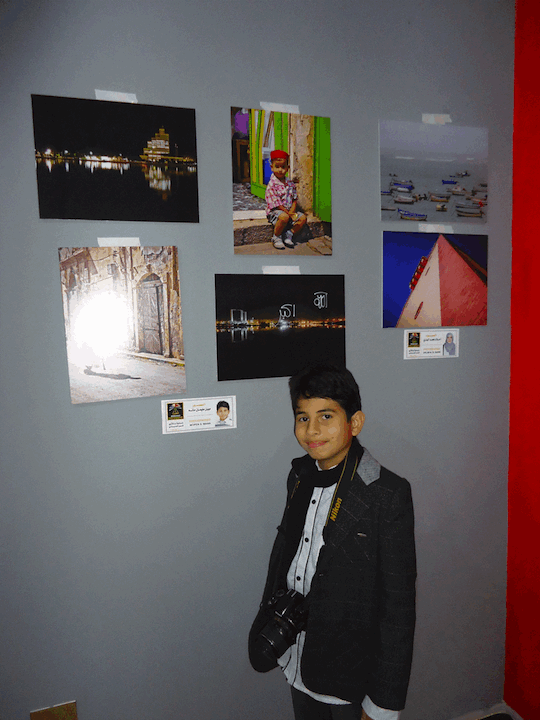
Another Club member, Ibrahim al-Aguri, won fourth place in the EU’s Arab Union of Photographers 2011 project, Arab Revolutions. He also participated with a short film, the Car Salesman. His participation was part of a series called Benghazi Stories and is the result of workshops run in 2012 by the Scottish Documentary Institute (SDI) and organized by the British Council.
Everyone attending the ASIFF event said they were looking forward to next year’s festival. [/restrict]



